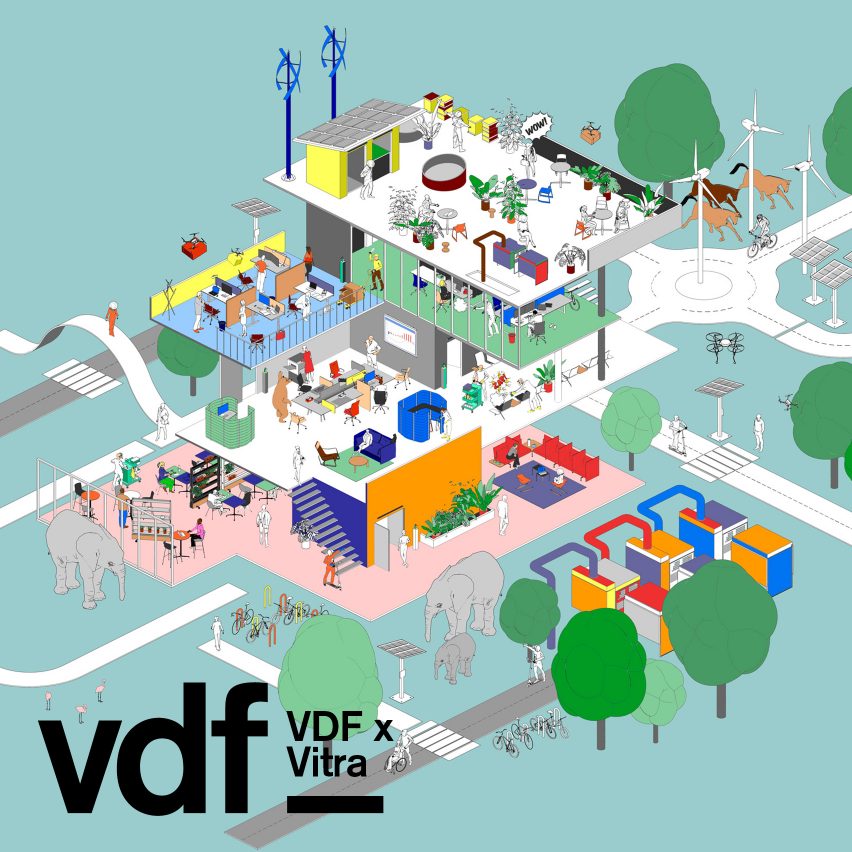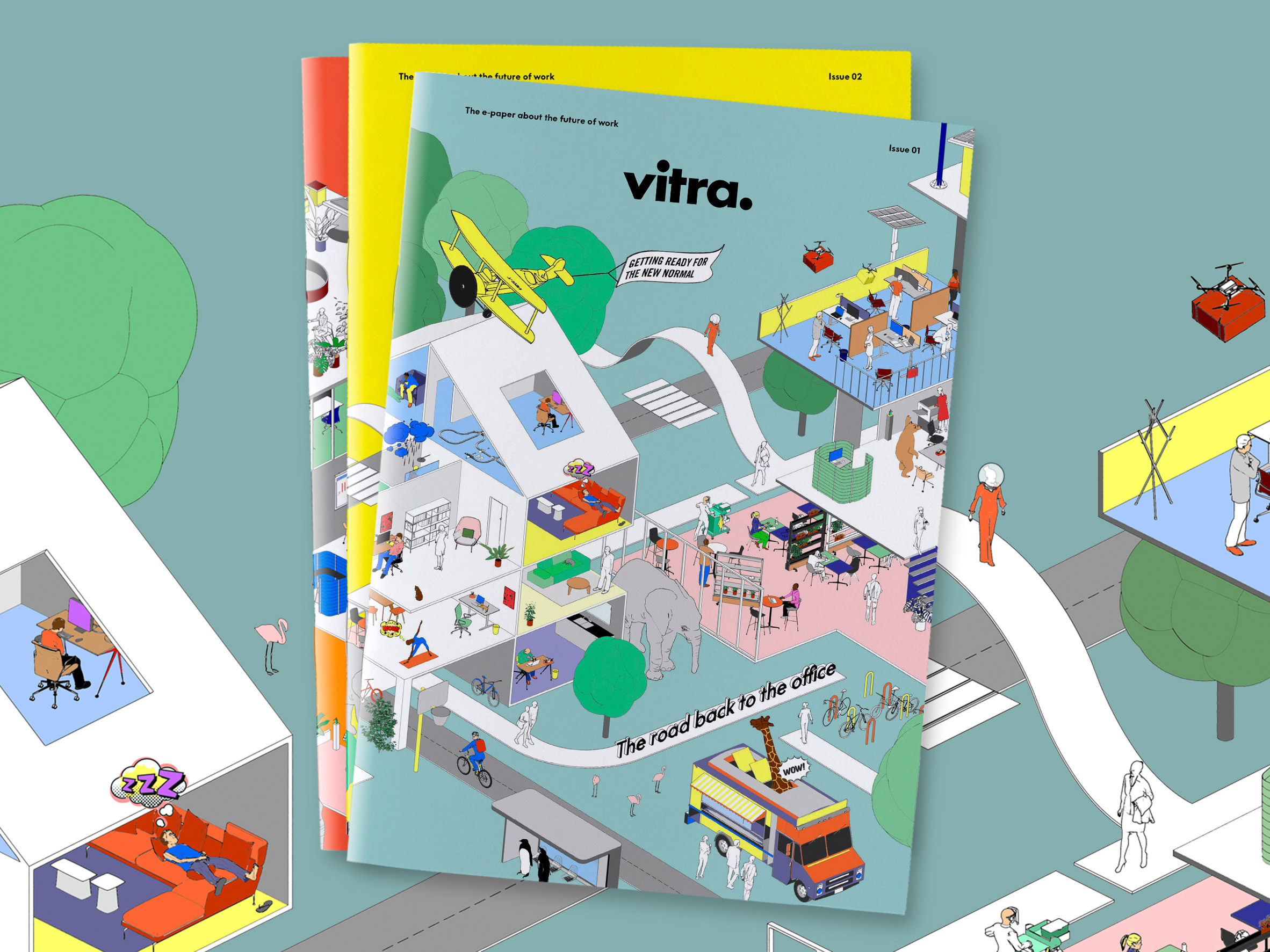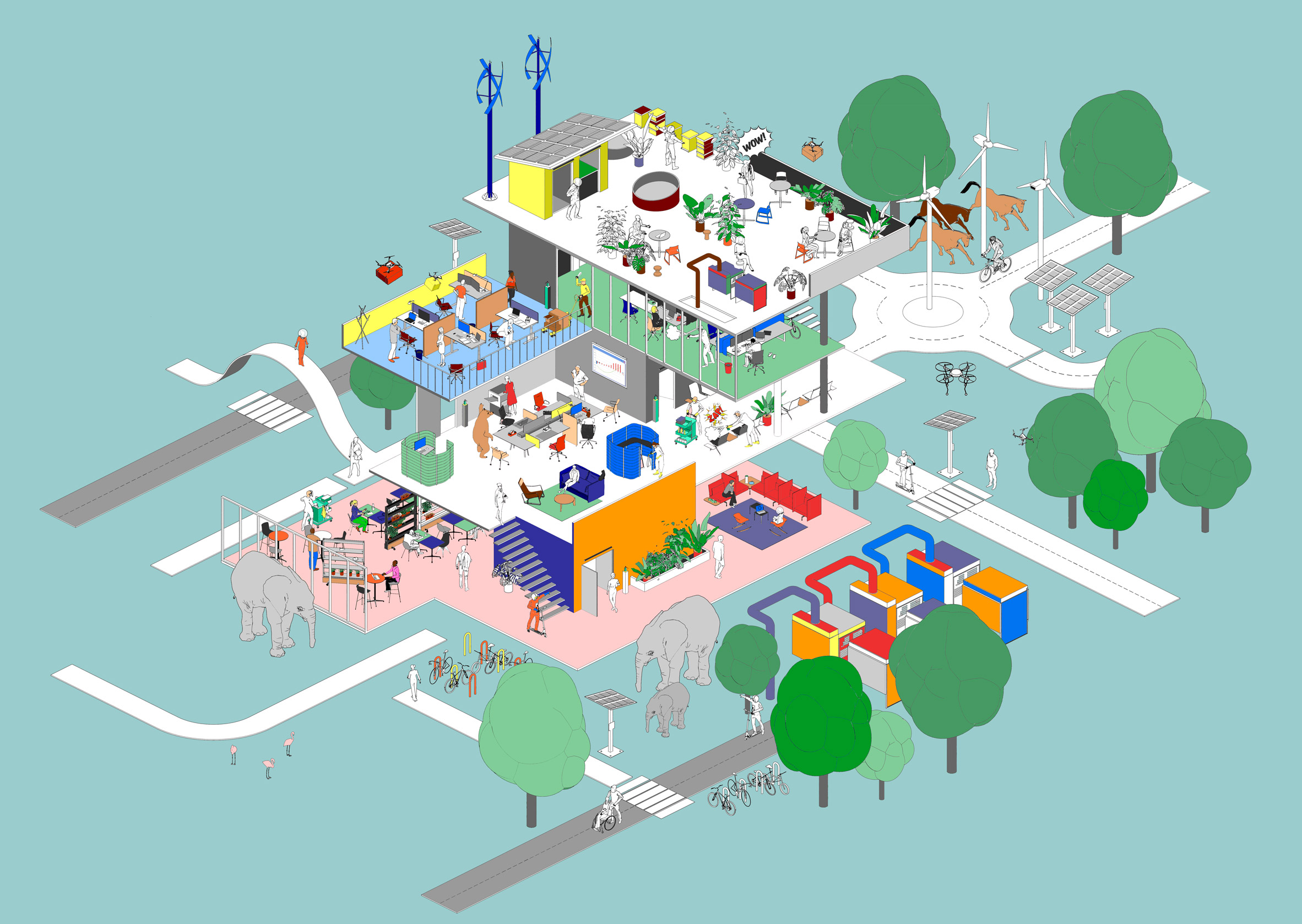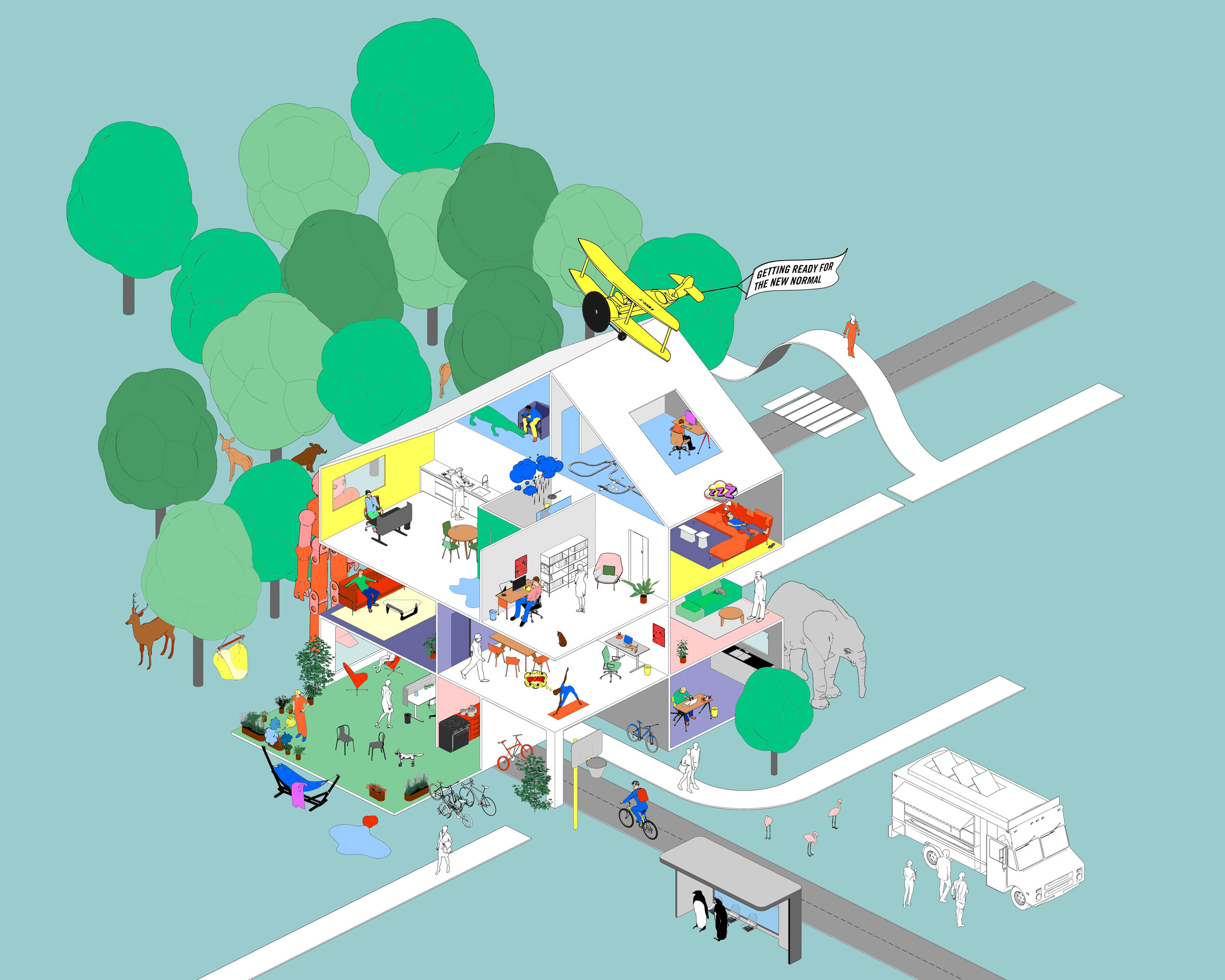
Offices will remain crucial places for creativity and combatting loneliness but will change dramatically in the wake of the coronavirus pandemic, according to research by Vitra published today as part of VDF's collaboration with the furniture brand.
The first two of a series of e-papers on the post-pandemic office, uploaded to the brand's website last month, include six hypotheses about how workplaces will change
Offices help prevent loneliness
"The physical workspace acts as an important factor in preventing the loneliness epidemic in an increasingly digital world," states the first downloadable e-paper, called The Road Back to the Office.
"Some talent cannot or does not want to work from home and requires the physical environment to focus, interact or simply to be in surroundings that signal the purpose of their chosen employer," it states.

Companies have a responsibility to "avoid marginalising the main caretakers of households and children, often women, by not requiring them to work from home, where they are essentially confronted with both of their jobs at the same time." it adds.
Creativity requires serendipity
In addition, creative and highly sensitive work such as branding, innovation and research are "more likely to remain within the physical walls of the company.".
"They require serendipitous, unplanned moments that spark collaborative human invention, which only a common physical space can provide," Vitra says.

Vitra has grouped its findings into six key ideas that will inform office design in the future. The first covers hygiene standards and how this will impact the design of office furniture and fixtures.
Leather could replace textiles
Offices will see less use of textiles and upholstery while easy-to-clean materials such as leathers and artificial leathers will become more popular.
"Wood can be considered a good option," states the Swiss brand. "A warm natural material, comforting to touch, yet hygienic and easy to clean."
Offices will increasingly implement touchless [link] features such as automatic doors, elevators and coffee stations, with badge-only payments in canteens where shared objects such as salt shakers are removed.
Handshakes "no longer appropriate"
New modes of behaviour will be introduced, it predicts. "Rituals such as handshakes, friendly hugs or cheek kissing will no longer be deemed appropriate."

The second hypothesis covers increased remote working, which will reduce the density of staff in the office and therefore facilitate social distancing.
"Allowing for remote working gives a company access to a global talent pool and reduces its ecological footprint at the same time," Vitra adds.
Homeworkers could "expense the extra space"
Employees will need dedicated workspaces in their homes equipped with infrastructure including an ergonomic task chair, a height-adjustable desk, a desk lamp, access to a wireless network, noise-cancelling audio equipment plus IT equipment.
"In some cases, employees may even be able to expense the extra space required in the employee‘s home," Vitra says.
There will be fewer physical meetings, with essential meetings involving physical distancing or standing, while trade fairs and events will be transformed.
"Fairs and congresses that by nature require large crowds to gather in confined spaces will be less attended and move much of their programming onto digital platforms," the report says.
Shared workspaces will be completely rethought, with each employee having their own personally assigned chair "that is safely parked in a reserved space during the times they are away". IT equipment will never be shared.
Office "becomes a place of gathering"
The sixth hypothesis states that remaining workspaces will "become a conscious investment" for firms, representing its values and providing staff with support and facilities unavailable to them at home.
"A good physical office environment gains importance in a time of crisis," said Vitra Nora Fehlbaum. "It becomes a place of gathering and social interaction – a place that reflects corporate cultural values."
Downloadable e-papers
A second e-paper titled A safe landing in a new office reality is available to download from Vitra's website. Further papers on the impact of the pandemic on public spaces and the home will be published soon.
Vitra is a family-owned, design-led furniture company based in Birsfelden near Basel in Switzerland. It has collaborated with numerous designers and has commissioned contemporary architects to design buildings at Vitra Campus, a private estate at Weil am Rhein which includes Frank Gehry's Vitra Design Museum, Herzog & de Meuron's VitraHaus showroom and Zaha Hadid's fire station.
The post Physical workplaces important for "preventing the loneliness epidemic in an increasingly digital world" says Vitra appeared first on Dezeen.
https://ift.tt/2Yazt8n
twitter.com/3novicesindia
No comments:
Post a Comment